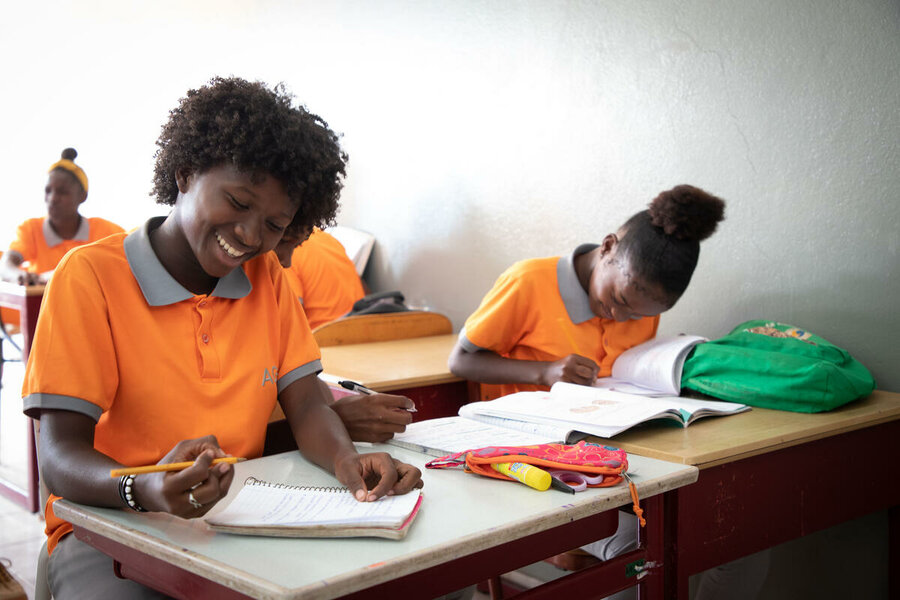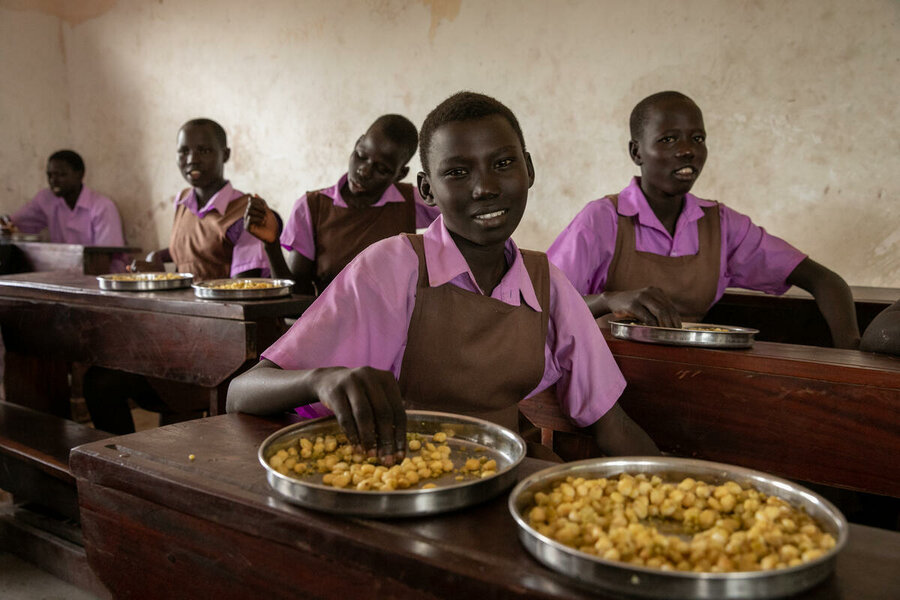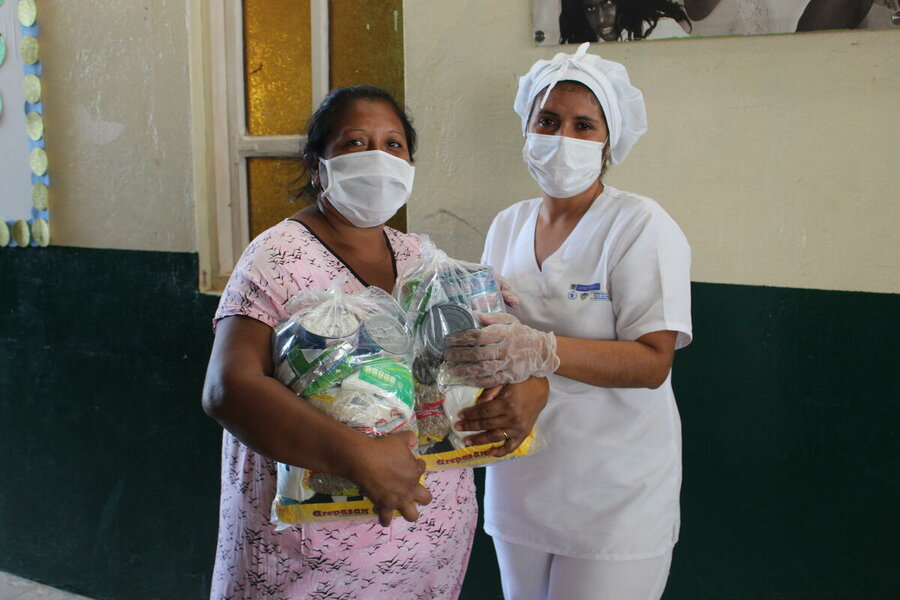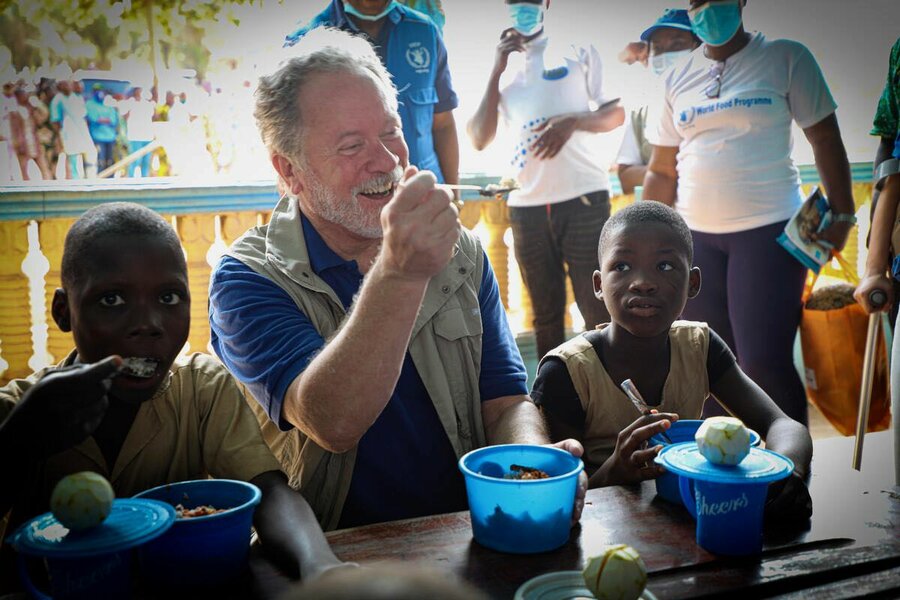Hundreds of schools have shuttered in Somalia this year amid a searing drought that pushed the East African nation to the edge of famine and risks erasing learning opportunities for thousands of children.

In Cape Verde and Sri Lanka, soaring food prices have deepened hunger and count among a mix of factors making state-run school meals programmes too costly for struggling governments.
And in countries rich and poor, experts say lost learning during COVID-19 could cost a staggering US$17 trillion in lifetime earnings among today's generation of school kids.
The alarming intersection of an unprecedented global health pandemic and food crisis backdrops the Transforming Education Summit in New York, which aims to put schooling at the top of the political agenda-and mobilize action and resources to give children the tools to succeed in a rapidly changing world.
"These are not two separate crises," said Carmen Burbano, Director of the World Food Programme's (WFP) School-Based Programmes Division. "They're connected, because we're failing our kids. We're not feeding them and we're not educating them - and everybody is going to end up losing."
That message is being echoed by our partners in the School Meals Coalition, a rainbow grouping of 70 countries and organizations including WFP. We are calling on governments and other key players to prioritize school meals as key safety nets against hunger and building blocks for development .
The price tag-an estimated US$5.8 billion to ensure the most vulnerable children don't fall through the cracks and receive much-needed school meals and health interventions-is far cheaper than the cost of inaction. It's a message that resonates in countries like Rwanda, Benin and Honduras.
"African countries have long recognized the benefits of school feeding to protect children's health, nutrition and education, whilst strengthening local food systems," said Fati N'zi-Hassane, Head of Human Capital and Institutional Development with the African Union Development Agency, a School Meals Coalition task force member.
"Country ownership and commitment is the key," N'zi-Hassane added. "Efforts to protect and scale up these programmes are now more important than ever, to protect the youths of Africa from the colliding food and education crises."
Multiplying emergencies
The call to action comes amid historic hunger levels-345 million people face acute food insecurity today, up from 282 million earlier this year-as conflict, climate change and high prices intensify food insecurity. Of those, some 153 million children are acutely hungry, or 40 percent of the total.
At the same time, rising food, fertilizer and fuel prices are driving up the cost of school meals, which rose an average of 20 percent in countries like Ethiopia, South Sudan and Malawi. WFP's own school meals operating costs jumped 15 percent this year, with vegetable oil - once sourced from Ukraine - a big contributor.

Photo: WFP/Eulalia Berlanga
The rising costs are leading some governments to sharply shrink the quantity and quality of school meals-in some cases to nothing more than a bun and tea - or the numbers of children who receive them.
Meanwhile, a long-simmering educational crisis has intensified, with months of learning lost due to COVID-19 restrictions.
Low-income countries are paying the highest price, Burbano said. A staggering 70 percent of 10-year-olds cannot read or write a simple sentence.
"Even before the pandemic we were in a bit of a learning crisis," Burbano added. "Now, after two years of essentially not going to school for many of these kids, particularly in the poorest countries, we're facing the largest educational emergency we've ever seen."
Banking on school meals is all the more important given their vital role in connecting the dots between hunger, education, development, gender empowerment and economic growth.
Indeed, research shows every dollar invested in school meals yields US$9 in economic returns.
"If we're trying to support communities and families through the food crisis, school feeding is one of the most powerful tools we and governments have," Burbano said.
Filling gaps, stepping up
In countries hard hit by the confluence of crises, WFP and partners are helping to fill the cracks. That includes in Sri Lanka and Cape Verde, where WFP plans to reach a total of 1.1 million children with school meals in the coming months.
"We know from WFP's monitoring that as soon as households fall into food insecurity, they take measures like taking kids out of school - and we know girls get pulled out first," Burbano said. "By contrast, the mere presence of meals in schools can be enough to keep their kids in school."

A case in point is Colombia, where many children dropped out of remote learning during the COVID-19 pandemic and never returned when schools reopened. But World Bank findings showed take-home rations under the country's school feeding programme helped to keep more than 70,000 others in school.
Almost all those receiving the rations came from extremely vulnerable families. Most of their parents believed they could better weather economic shocks thanks to the programme - which also employed 73,000 women to prepare the food.
Elsewhere, as well, WFP's take-home rations for young pupils, especially girls, offer an added incentive for parents to send and keep their children in school.
Meanwhile, rising international prices offer another compelling reason to source food locally-which WFP has done for years in dozens of countries through programmes that link farmers to schools. That's the case in the Southern Asian nation of Bhutan, where WFP assists farmers like 32-year-old Tshering, whose all-woman cooperative supplies the ingredients for her daughter's school meals.
WFP is also stretching its school feeding dollars by swapping in nutrient-packed products like fortified maize meal, at little or no extra cost.

For their part, some governments are stepping up their response to the crisis. Rwandan authorities, for example, have increased by more than fivefold the numbers of children enrolled in the national school meals programme, reaching 3.8 million pupils.
In Benin, President Patrice Talon has committed to increasing the national budget for the school meals programme from US$79 to US$240 million over the next five years. Senegal and Honduras are also committing more resources to school feeding.
"These are the kinds of examples we would like to see," Burbano said, "governments really prioritizing their kids and protecting them from the worst effects of the crisis."






